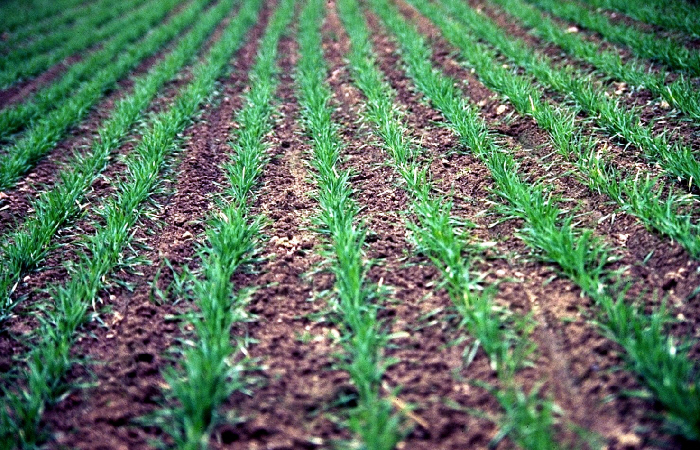A Big Idea

By Surya Zeeb
Published: January 28, 2020
Category: Regenerative Agriculture, The Organic & Non-GMO Report Newsletter
By Carey Gillam
A new farmer network has emerged in Illinois focusing on regenerative agricultural practices and is expanding across the Midwest. The IDEA Farm Network, which has more than 400 farmer members—both conventional and organic—provides a forum for farmers to support each other and share ideas about and research into regenerative methods.
IDEA members in multiple states are using their farm fields as test plots for unofficial experiments in how to match conventional yields in soybeans, corn, and other crops with different mixtures of time-honored farming practices.
They’re digging deep, so to speak, experimenting with mixes of cover crops, varying sizes of row spacings, and assorted crop rotations—all aimed at perfecting no-till organic, regenerative food-production practices that can rival conventional production in both quantity as well as quality.
The IDEA network is part support group and part research organization. Members mentor each other, sharing strategies that work well and also warning each other of failed tactics. They trade videos and photos, participate in a listserv, and hold “tailgate” meetings around the region to brainstorm about how to garner top yields and raise livestock while also meeting the network’s mission of creating nutritious food through financially viable methods that regenerate, according to IDEA’s mission statement, “precious soil, water, and wildlife.”
The network has support from the University of Illinois as well as a number of organizations working on conservation and sustainable food issues, and has obtained financial support, including a small grant from the US Department of Agriculture, to document crop gains and losses associated with various practices. Academics from Ohio and Wisconsin also frequently weigh in to offer expert guidance, and the group is open to consumers and advocates as well.
As the network grows, the farmers are working together and with advisors to explore new markets for the pesticide-free products they are producing and are pushing for policies that support regenerative agriculture. Some members hold “field days” with school groups. Others speak out at farming conferences.
Farmer member and agronomist Will Glazik, who helps lead the IDEA Farm Network, says: “I’m in it for environmental reasons. The way that we raise crops without synthetic inputs means we can increase the soil organic carbon. Plus we’re removing the chemicals from our fields, which in turn takes it out of the streams and the waterways. We’re providing habitat for pollinators and other biodiversity,” he adds.
Source: Earth Island Journal
To view source article, visit: http://www.earthisland.org/journal/index.php/magazine/entry/a-big-idea#




